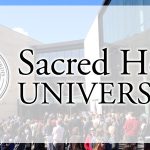Roosevelt University
Overview
Opening the door.
The story of Roosevelt University is one of courage.
It all started in 1945. Edward J. Sparling, then president of the YMCA College in Chicago, refused to provide his board with requested demographic information regarding his student body, fearing they would instate a quota limiting the number of blacks, Jews, immigrants, and women enrolled. Sparling was an idealist and visionary, outspoken in challenging endemic inequality in an era that accepted it as second nature. After his refusal to meet the board’s request, Sparling resigned under protest. However, his moral courage inspired a brave exodus among the school’s principled faculty and staff. Nearly half left with him, vowing to create an independent, nonsectarian, coeducational institution of higher learning.
The new school was chartered as Thomas Jefferson College in, 1945. Just two weeks later, Franklin Roosevelt, beloved president and champion of human rights, died in office. In honor of his contributions to equality and democracy, the school was renamed Roosevelt College. Touched by the tribute, first lady Eleanor Roosevelt – also a leading activist for peace and social justice – served as a beacon of encouragement and support for the institution and its vision, dedicating it “to the enlightenment of the human spirit.”
Roosevelt University is nationally recognized for providing transformation experiences and opportunities for discovery that create socially conscious citizens who are leaders in their professions and their communities.
Why choose Roosevelt University?
All students who have completed their education outside of the U.S. must show proof of English proficiency. Students who do not have the required English proficiecy, may register in Roosevelt’s English Language Program (ELP). Students will be tested using Roosevelt’s English Language Proficiency (ELP) Exam. Click here to see Frequently Asked Questions.
- If you are applying to Roosevelt from outside of the U.S., you must submit a TOEFLexam or IELTS exam to show your English proficiency.
- If you are applying to Roosevelt from within the U.S., you must submit a TOEFLexam, an IELTS exam or take Roosevelt’s English Language Proficiency (ELP) Exam to show your English proficiency.
- Students who have completed a degree in the U.S. may have this requirement waived. Please click here for a list of exemptions.
Minimum Test Scores
Students with this score do not need to take Roosevelt’s English Language exam.
- TOEFL Exam – A minimum score of 80 (iBT) or 550 (paper based TOEFL); some departments require a minimum score of 18 or higher on the writing section of the TOEFL. Please have official scores sent directly to Roosevelt by ETS. Roosevelt’s school code is 1666.
- IELTS Exam – The minimum on the Academic IELTS test is 6.5; some departments require a minimum score of 6.0 or higher on the writing band score. Please have official scores sent directly to Roosevelt by the British Council.
Students with this score are required to take Roosevelt’s English Language exam. Once admitted, they will be required to take 1-3 semesters of English language classes before they start taking their major classes.
- TOEFL Exam – A minimum score of 40 (iBT). Please have official scores sent directly to Roosevelt by ETS. Roosevelt’s school code is 1666.
- IELTS Exam – The minimum on the Academic IELTS test is 3.5. Please have official scores sent directly to Roosevelt by the British Council.
TOEFL/IELTS Exemptions
The TOEFL or IELTS may be waived for the following reasons.
- The student has completed four consecutive years of secondary education (high school) in a North American high school in which English is the language of instruction.
- The student has completed 30 or more transferrable semester hours, including the equivalent of Roosevelt’s English 101 and English 102, at an accredited U.S. college or university.
- The student has completed a Bachelor’s degree at an accredited North American college or university in which English is the language of instruction.
- The student has completed a Master’s degree at an accredited North American college or university in which English is the language of instruction.
Fall 2015–Spring 2016 Tuition and Fees
Full-Time Tuition
| Undergraduate (12-18 credits per semester) | per Academic Year | |
|
- BPS programs in criminal justice, commerce and enterprise, and sustainability (for any number of credit hours entering before fall 2013)
- BPS programs in criminal justice and sustainability (for any number of credit hours entering fall 2013 or later)
- Chicago College of Performing Arts
- $27,300
- $27,300
- $27,300
- $27,300
- $606/credit hour
- $737/credit hour
$34,625
Graduate (9-12 credits per semester) 1
- College of Arts and Sciences
- MFA in Creative Writing students entering before fall 2012
- MFA in Creative Writing students entering fall 2012 or later
- MA in Biomedical Sciences students entering fall 2015
- Heller College of Business
- College of Education
- Evelyn T. Stone College of Professional Studies
- Chicago College of Performing Arts (9-13 credits)
- $18,390
- $18,390
- $19,965
- $28,390
- $18,390
- $17,125
- $18,390
- $34,625
Doctoral (9-12 credits per semester) 2
- College of Arts and Sciences: PsyD students entering before fall 2010
- College of Arts and Sciences: PsyD students entering fall 2010 or later
- College of Arts and Sciences: PhD in I/O Psychology
- College of Pharmacy: PharmD
- and pharmacy technology fee
- $18,915
- $22,595
- $18,915
- $47,500
- $900
Part-Time Tuition (per credit)
Undergraduate (1-11 credits) per Credit Hour
- College of Arts and Sciences
- Heller College of Business
- College of Education
- Evelyn T. Stone College of Professional Studies
All programs except those directly listed below:- BPS programs in criminal justice, commerce and enterprise, and sustainability (for any number of credit hours entered before fall 2013)
- BPS programs in criminal justice and sustainability (for any number of credit hours entering fall 2013 or later)
- Chicago College of Performing Arts
- $737
- $737
- $737
- $737
- $606
- $737
- $1,442
Graduate (1-8 credits)
- College of Arts and Sciences
- MA in Clinical Psychology students entering before fall 2012
- MA in Clinical Psychology students entering fall 2012 or later
- MFA in Creative Writing students entering before fall 2012
- MFA in Creative Writing students entering fall 2012 or later
- MA in Biomedical Sciences students entering fall 2015
- Heller College of Business
- College of Education
- Evelyn T. Stone College of Professional Studies
- Chicago College of Performing Arts
- $826
- $826
- $1,011
- $826
- $1,099
- $1,577
- $826
- $811
- $826
- $1,923
Doctoral (1-8 credits) 2
- College of Arts and Sciences: PsyD students entering before fall 2010
- College of Arts and Sciences: PsyD students entering fall 2010 or later
- College of Education: EdD
- College of Pharmacy: PharmD
- $1,051
- $1,256
- $819
- $1,400
Summer session 2016 tuition is assessed by credit hour and is not included in academic year charges, with the exception of the College of Pharmacy tuition charge which does include the summer term.
Eleanor Roosevelt tirelessly supported the school, stressing how important it is to “provide educational opportunities for persons of both sexes and of various races on equal terms and to maintain a teaching faculty which is both free and responsible for the discovery and dissemination of the truth.” Her influence was invaluable and impacted some of the greatest minds of the 20th century. Early advisory board members include Marian Anderson, Pearl Buck, Ralph Bunche, Albert Einstein, Thomas Mann, Gunnar Myrdal and Albert Schweitzer.
And now, more than sixty years later, Roosevelt continues to honor President Sparling’s founding principle of equal opportunity. The University still takes great pride in our diverse mix of students, from incoming freshmen to returning adult students; from those working full-time jobs to those working full-time on their degrees.
Because our outstanding faculty, staff and students still hold the University to the highest standards in academic and social leadership, we continue to honor our history of excellence while instilling within the next generation Franklin and Eleanor’s devotion to community, leadership and progress.
Mission
Reflecting the ideals of its founders in 1945, Roosevelt University is a private, nonsectarian community of educators, scholars, and learners committed to academic, creative, and service excellence who value differences in personal experiences and perspectives; ask the difficult questions; and promote mutual understanding, inclusion, social consciousness, and action toward social justice. Recognizing that difference broadens perspectives, Roosevelt University seeks and serves a diverse, promising student body from metropolitan Chicago and around the world.
The hallmarks of the Roosevelt University experience are strong student-faculty interaction and engagement with metropolitan Chicago as both a laboratory for learning and as an expression of its commitment to social justice. The experience is created through the efforts of a strong faculty dedicated to excellence in teaching, research, and creative activity and a staff equally focused on helping students grow and achieve their educational and life goals.
Roosevelt is a metropolitan university that is an active partner in the social, economic and cultural development of the communities it serves. It offers a broad array of academic programs, from the baccalaureate through doctoral levels, in a highly interactive environment where students can explore, discover, and develop their unique abilities and interests.
Vision
Roosevelt University is nationally recognized for providing transformational experiences and opportunities for discovery that create socially conscious citizens who are leaders in their professions and their communities.
“We can prepare to help the rest of the world and do it without fear, do it with good will; and they will sense that our own strength and our own example can give the rest of the world the hope that will lead us all to peace.”
— Eleanor Roosevelt, in her speech dedicating Roosevelt College on November 16, 1945.
“If it is foolhardy for 68 men (including a significant number of women) to resign their jobs without assurance of future security, the faculty of Roosevelt was foolhardy. If it is impossible to remodel an 11-story building in 33 days, equipping it with classrooms, library, laboratories and offices, Roosevelt College was an impossibility.”
— Wayne Leys, Dean of Faculty, 1945






